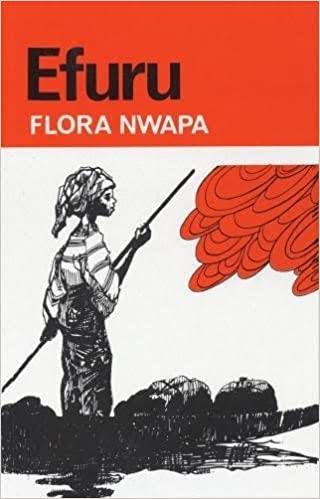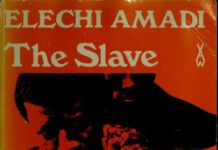Efuru has been having strange dreams lately. She decides to see her father.
In the middle of their discussion, an enraged man enters. “An impudent” Aniche’s son has abused his mother after being beaten because he watches goats feast on the angry man’s yams.
Nwashike Ogene begs him to take it easy and not hold grudges against his parents because they were not there when it happened.
The man thanks Nwashike and leaves. After his exit, Nwashike says the case isn’t the way he narrated it, but he doesn’t tell Efuru what really happened.
He says, “Never mind my daughter. We don’t say things like that. You are a child and should not hear such things” (p. 145).
Nwashike asks Efuru about her visit to the doctor. She and Eneberi had gone to Onicha to see the doctor, but they were told to come back.
They discuss the major reason why she is here. She has been dreaming about the woman of the lake, and Eneberi couldn’t interpret the dream.
Nwashike tells Efuru that it’s a good dream. “Your dream is good. The woman of the lake, our Uhamiri, has chosen you to be one of her worshippers. You have to see a dibia first, and he will tell you what to do,” says Nwashike (p. 147).
They decide to visit a dibia on an Afo day, but Nwashike’s legs begin acting weird, so he invites the dibia over to his house.
The talkative dibia is around to divine for Efuru. He sees her and tells her what Efuru’s father had told her about the dream.
Uhamiri is to be worshipped on an Orie day, and fishing must be forbidden on that day, including yam eating.
She must not sleep with her husband on that day, and she should boil, roast, or fry plantains on Orie nights because Uhamiri likes plantains very well.
She must be in white on Orie days if she’s going to bed. A white fowl and a white sheep should be used as sacrificed meat for Uhamiri.
She has to buy an earthenware pot, fill it with water from the lake, and put it in one corner of her room. Cover it with a white piece of cloth. And more importantly, she should keep herself holy.
The dibia, however, admonishes Efuru to keep all these so as to enjoy the benefits of the woman of the lake.
The dibia leaves, refusing to collect his usual nine pence charge. But Nwashike tells his daughter to see him the following morning and give him “a bottle of home-made gin, one head of tobacco, and nine pence” (p. 154). Efuru’s father says he will not refuse it that way.
 WHATSAPP: Click HERE to join the new Literature PADI WhatsApp group to receive latest updates on your phone and for further literary discussions!
WHATSAPP: Click HERE to join the new Literature PADI WhatsApp group to receive latest updates on your phone and for further literary discussions!








